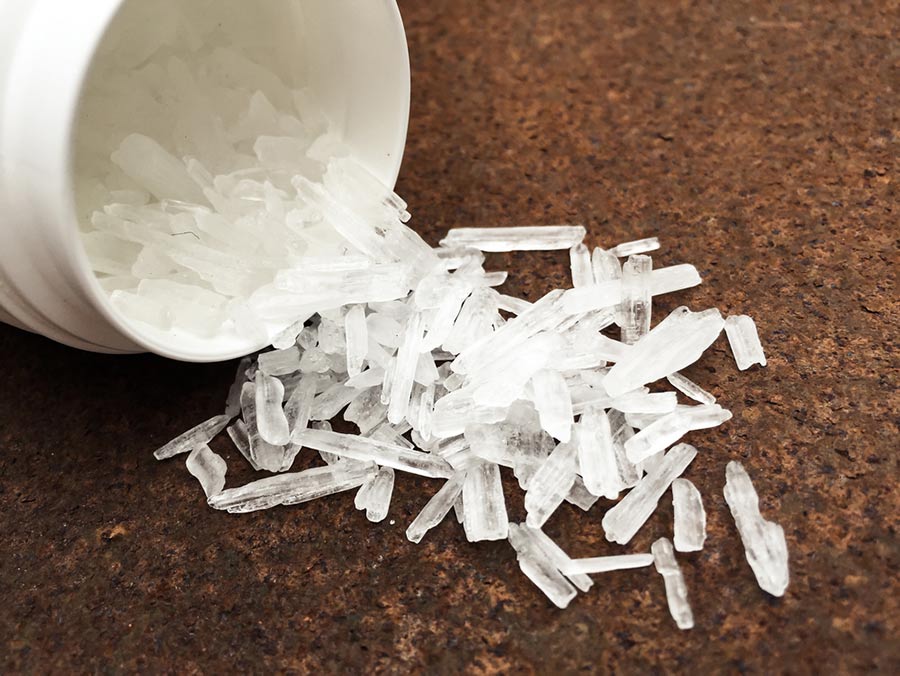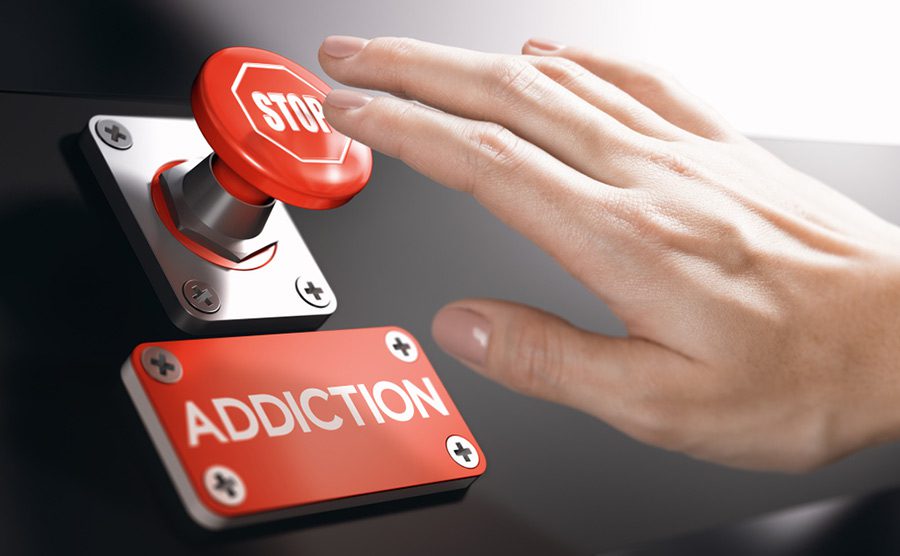
What Are The Side Effects of Meth?
Understanding Methamphetamine Substance Abuse
Methamphetamine is a dangerous drug that acts as a central nervous system stimulant. It can be manufactured as a pill or powder, or it can be sold as crystal meth, a more potent form of the drug that resembles glass shards. Methamphetamine is now rarely manufactured as a prescription drug, but is instead manufactured in illegal drug labs from chemicals like battery acid, lye, and paint thinner.
Most users of crystal meth smoke meth, but methamphetamine can also be snorted, injected, or taken orally. Methamphetamine produces an intense high and a feeling of energy and euphoria, and can also stimulate increased physical activity. However, the incredible addictiveness and dangerous effects of chronic meth use far outweigh any of the short term “benefits” of the drug.
Though it has been somewhat overshadowed by the worsening opioid epidemic, methamphetamine addiction, also known more colloquially as meth addiction, is another serious form of drug addiction that is threatening and destroying American lives, with the rate of fatal meth overdoses having nearly tripled between 2015 and 2019. Meth was also associated with the majority of the 23,837 American overdose deaths involving psychostimulants that were documented during the past year.
To further speak to the scope of the problem, the Substance Abuse And Mental Health Services Administration claims that about 2 million people aged 12 or older use the drug meth in any given year, and, according to the National Institute on Drug Abuse, as of 2020, research suggests suggests that up to 1.5 million people had suffered from a full blown methamphetamine use disorder in the preceding 12 month period. You can keep reading to learn more about the devastating effects of meth addiction, as well as about how you or a loved one can begin treatment for meth addiction and avoid these horrific outcomes.
Dangerous Side Effects Of Methamphetamine And Crystal Meth Drug Abuse
As is the case with most other illegal drugs, methamphetamine and crystal meth use is so tightly regulated because methamphetamine and crystal meth addiction can cause many serious health problems. Even the short term, meth increases the risk of serious cardiovascular system complications, since the physical effects of the drug include high blood pressure. This can cause medical conditions such as irregular heartbeat, heart palpitations, or even a heart attack in the case of overdose.

Even a meth user avoids overdose in the short term, over time, this high blood pressure can damage blood vessels. Since blood vessels provide blood to all critical organs, including the heart, this can play a role in causing heart disease, heart attacks, and heart failure.
The severely impaired judgement and severe psychological disturbances caused by the intense high associated with taking meth can also be dangerous even in the short term. While a lower dose of methamphetamine might only cause anxiety and mild paranoia, a higher dose may cause psychosis and violent behavior, and risky sexual behavior while high could also have long term health consequences.
Even more worrisome, brain damage from habitual meth abuse means that psychotic symptoms, violent behavior, and mood disturbances may begin to affect people who use meth even while they are sober. Over time, both cognitive skills and motor skills may be impacted by brain damage from methamphetamine and crystal meth use, as can the ability to feel pleasure.
This is because stimulant effects on mood are primarily due to the fact that they cause the brain to release the reward chemical dopamine, which is why the mood swings up and creates a short lived feeling of mental well being after the person takes the drug.
However, dopamine released by the use of methamphetamine or crystal meth conditions the brains of meth users to expect them to take meth— in other words, their brain begins to get used to the presence of methamphetamine. This fuels addiction because users will feel as if they need meth just to feel “normal” and can result in the person experiencing withdrawal symptoms when they are not using the drug, including fatigue, depression, and mood swings.
Other physical symptoms that can present as one of the effects of meth addiction include weight loss. Methamphetamine and crystal meth both suppress appetite, so you may notice weight loss in someone who has been struggling with chronic use of meth. This is problematic because sudden loss of a significant amount of weight can significantly weaken a person’s immune system, putting them at increased risk of infections and other health issues.
Finally, one of the most disturbing and most visible signs of meth use includes meth mouth, a condition characterized by tooth decay, rotting teeth, the eventual loss of teeth, and other signs of poor oral health. Because the stimulant affects saliva production, many meth users suffer from dry mouth, a problem that is only worsened by the fact that their meth abuse may be so all consuming that they neglect even basic oral hygiene. Similar neglect of hygiene can also result in issues like unsightly skin sores.
Addiction Treatment For Meth And Other Drug Use At Reco Intensive
As daunting as it can be to get sober from crystal meth or methamphetamine addiction, with proper treatment and enough hard work, any person’s life can get back on track. Treatment can help methamphetamine users to learn healthy coping mechanisms that they can use to rebuild their lives and to achieve a full and robust recovery.

If you or someone you love is currently struggling with methamphetamine abuse or abuse of other substances, Reco Intensive is among your best treatment options. We are one of the top treatment centers in the Delray Beach area, capable of dealing with various kinds of drug addiction, behavioral addiction, and co occurring mental health disorders.
The scientifically backed treatment we offer includes options like cognitive behavioral therapy, dialectical behavioral therapy, and rational existential therapy. Other group and individual therapy programs help our patients to process their past traumas and to learn to reconnect with their sober selves and with one another, a process that is only enhanced by our emphasis on holistic wellness.
To learn more about addiction treatment at Reco Intensive, feel free to call us anytime at 844.955.3042 or to contact us online anytime here. Let’s get back to a brighter future.